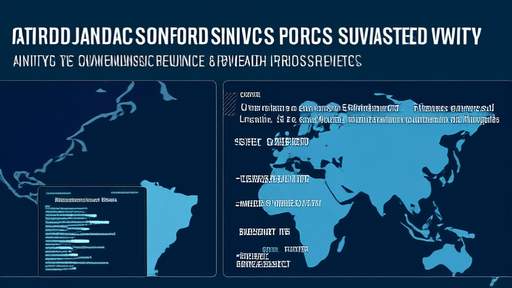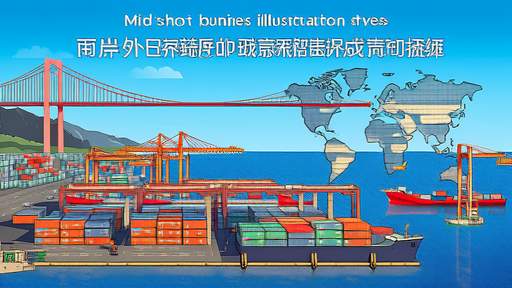The global crackdown on tax avoidance and profit shifting has forced offshore financial centers to implement economic substance legislation. These regulations, designed to ensure that companies conducting certain activities within these jurisdictions maintain real economic presence, have introduced significant compliance burdens for businesses operating in these regions. The costs associated with meeting these requirements extend far beyond simple paperwork, reshaping the very nature of offshore financial operations.
When the European Union first published its list of non-cooperative jurisdictions in 2017, it sent shockwaves through offshore financial centers. The threat of blacklisting pushed traditionally secretive jurisdictions like the British Virgin Islands, Cayman Islands, and Bermuda to rapidly adopt economic substance requirements. What began as a defensive measure against EU pressure has evolved into a complex regulatory framework with far-reaching implications for corporate structures.
The compliance landscape varies significantly across jurisdictions, but common elements include requirements for adequate physical presence, qualified employees, and sufficient operating expenditures. These rules particularly target entities engaged in banking, insurance, fund management, leasing, headquarters operations, shipping, intellectual property holding, and distribution and service center activities. The precise interpretation of "adequate" and "sufficient" remains subject to ongoing clarification through regulatory guidance and case law.
Legal and professional service providers in offshore centers have seen unprecedented demand for their expertise since these regulations took effect. Corporate service providers that once focused primarily on entity formation now find themselves building out compliance teams to help clients navigate substance requirements. The shift has been particularly challenging for smaller firms without the resources to quickly adapt to this new service paradigm.
Substance requirements have created a two-tiered market in many offshore jurisdictions. Larger multinational corporations with existing operations can often meet the requirements through relatively minor adjustments to their structures. By contrast, smaller companies and special purpose vehicles established purely for tax optimization face existential questions about whether maintaining their offshore presence remains economically viable given the new compliance costs.
The accounting profession has emerged as a critical player in economic substance compliance. Firms must now demonstrate that their offshore entities generate adequate income to support the required level of local expenditure and employment. This has led to increased demand for transfer pricing studies, functional analyses, and detailed financial reporting that goes well beyond traditional offshore company maintenance requirements.
Physical office space in major offshore financial centers has become both more valuable and more scrutinized. Where shell companies once satisfied requirements with virtual offices or mail forwarding services, regulators now demand proof of actual business premises. This has driven up real estate costs in business districts while creating new verification challenges for corporate registries and tax authorities.
Employee recruitment and retention has emerged as another critical cost factor. Substance regulations typically require that core income-generating activities be conducted by qualified employees physically present in the jurisdiction. For specialized industries like fund management or intellectual property holding, finding and retaining appropriately skilled professionals in small island economies presents both logistical challenges and significant salary inflation.
The technology infrastructure needed to support compliance has become a major expense item for many offshore entities. Where basic record-keeping might have sufficed in the past, companies now need sophisticated systems to track and demonstrate substance across multiple dimensions. This includes everything from timekeeping for local employees to detailed documentation of decision-making processes occurring within the jurisdiction.
Ongoing monitoring and reporting obligations create recurring compliance costs that many offshore structures weren't designed to bear. Annual filings now require detailed disclosures about physical assets, employee qualifications, expenditure patterns, and business activities. The preparation of these submissions often requires coordination between multiple professional service providers across different jurisdictions.
The indirect costs of economic substance compliance may ultimately prove more significant than direct expenses. Many offshore structures were designed specifically to minimize operational complexity, and the administrative burden of maintaining proper substance runs counter to this original purpose. Decision-makers now face constant trade-offs between compliance requirements and the efficiency benefits that originally motivated their offshore arrangements.
Regulatory divergence between jurisdictions adds another layer of complexity and cost. While the OECD and EU have pushed for some harmonization of substance standards, significant differences remain in interpretation and enforcement. Multinational groups with entities in multiple offshore centers must navigate these variations, often requiring local legal counsel in each jurisdiction where they operate.
The long-term sustainability of current compliance costs remains an open question. Some industry observers predict consolidation among corporate service providers as smaller firms struggle to maintain the necessary expertise across multiple regulatory regimes. Others anticipate that technological solutions may eventually help streamline certain compliance processes, though likely at significant upfront investment costs.
As economic substance regulations continue to evolve, their full impact on the offshore financial industry is still coming into focus. What began as an effort to combat harmful tax practices has grown into a comprehensive reshaping of how international business structures operate. The compliance costs associated with these changes are proving substantial enough to fundamentally alter the value proposition of many traditional offshore arrangements.

By /Jun 3, 2025

By /Jun 3, 2025

By /Jun 3, 2025

By /Jun 3, 2025

By /Jun 3, 2025

By /Jun 3, 2025

By /Jun 3, 2025

By /Jun 3, 2025

By /Jun 3, 2025

By /Jun 3, 2025

By /Jun 3, 2025

By /Jun 3, 2025

By /Jun 3, 2025

By /Jun 3, 2025

By /Jun 3, 2025

By /Jun 3, 2025

By /Jun 3, 2025

By /Jun 3, 2025

By /Jun 3, 2025

By /Jun 3, 2025